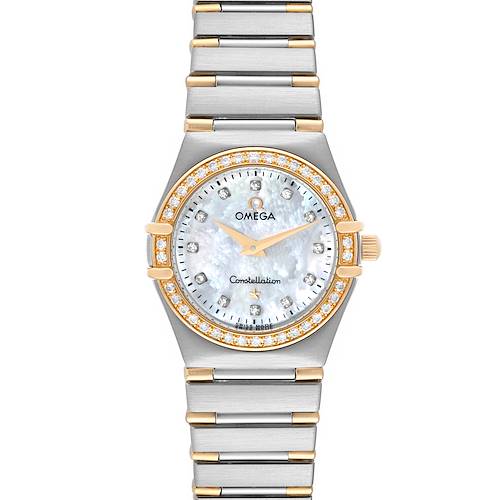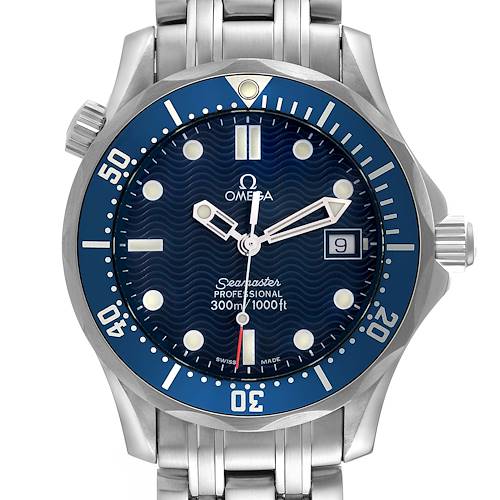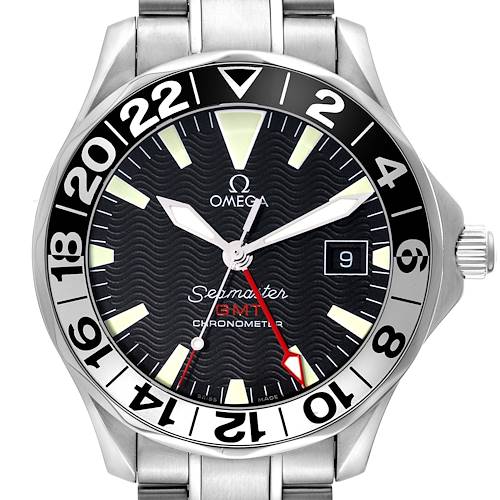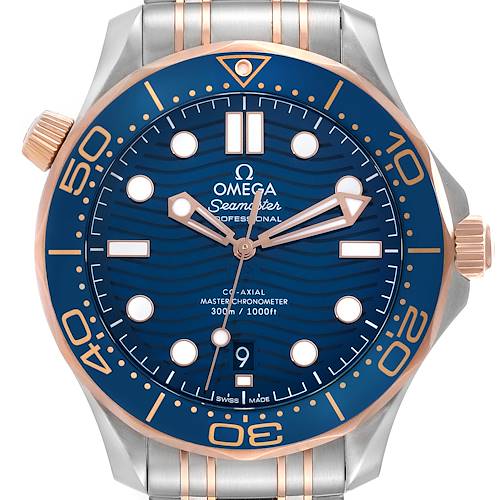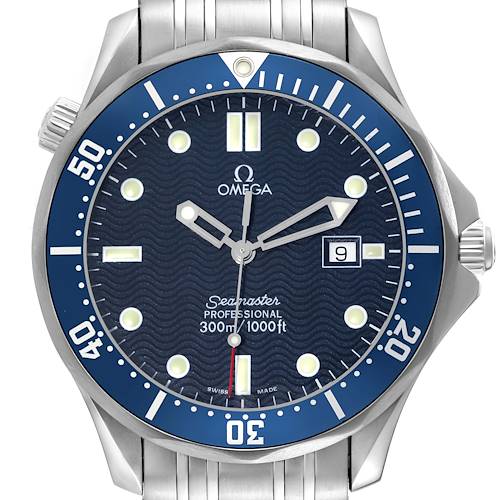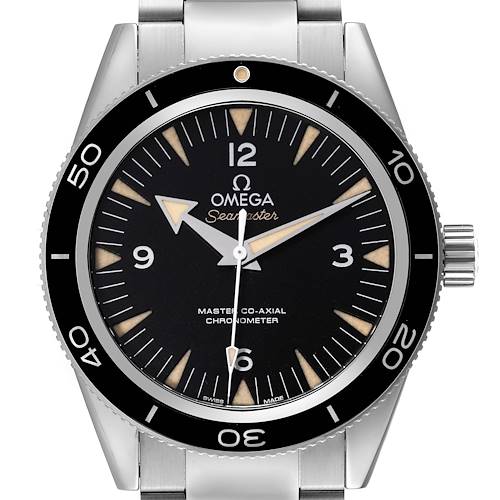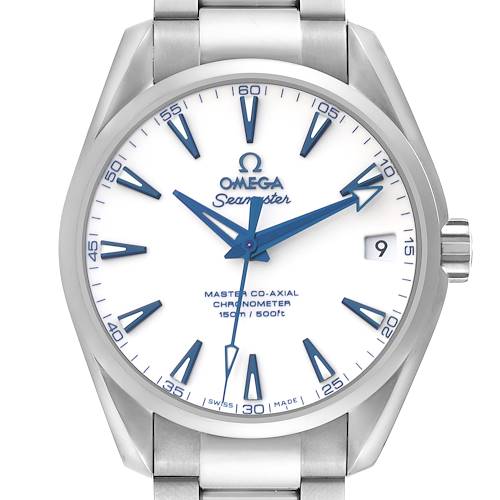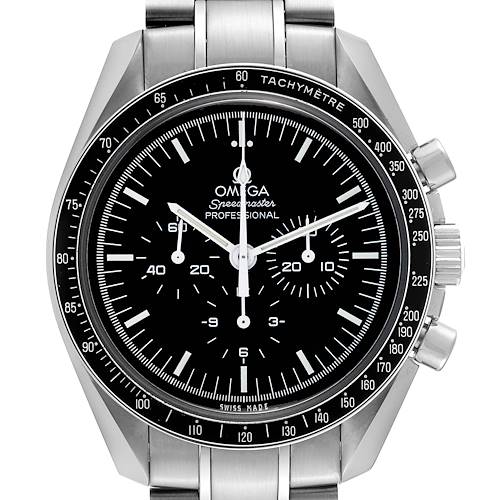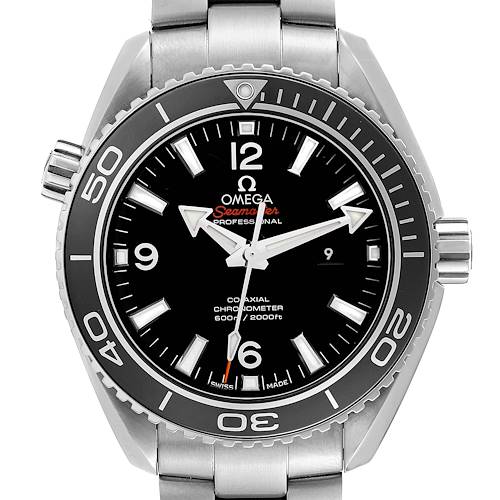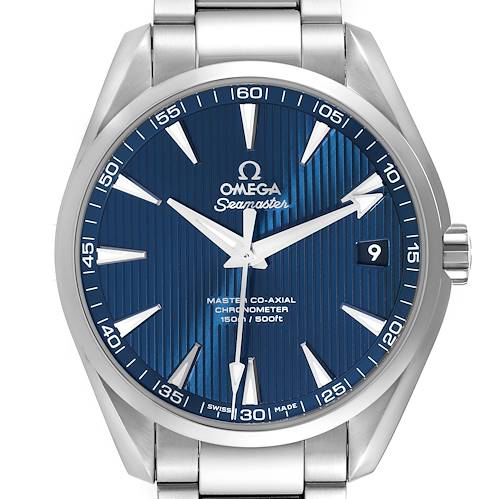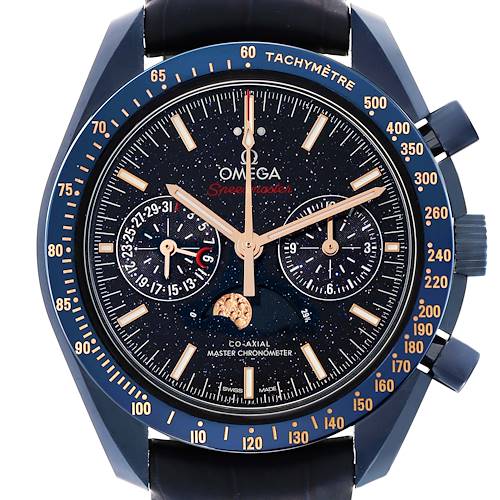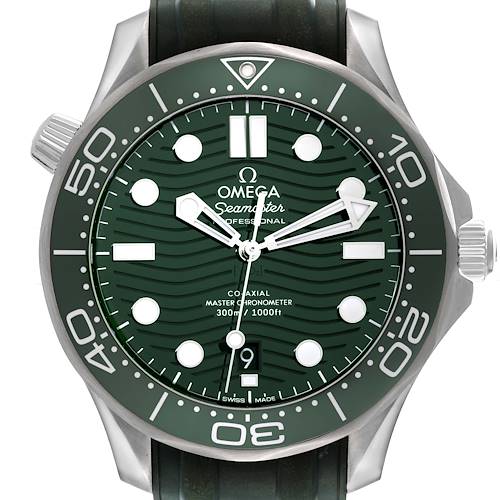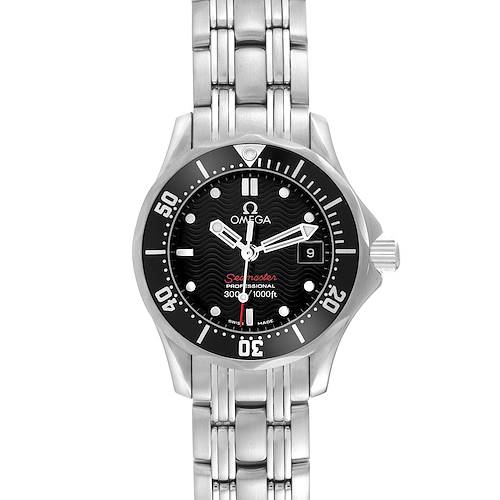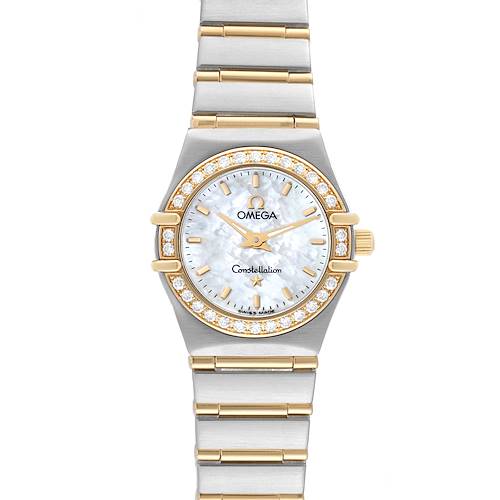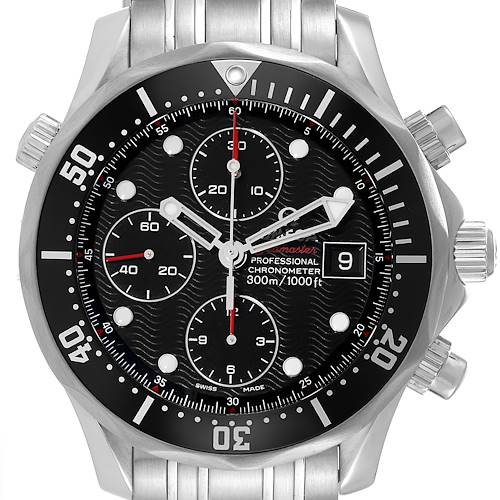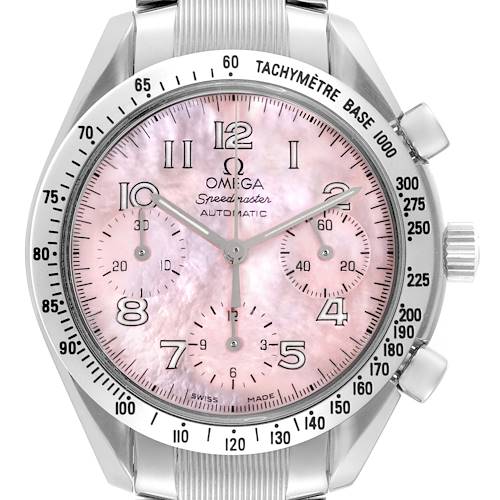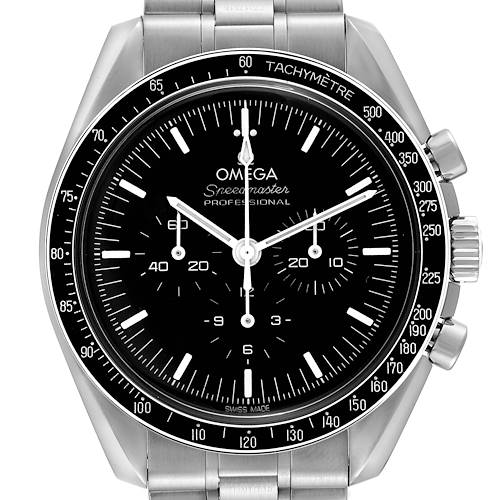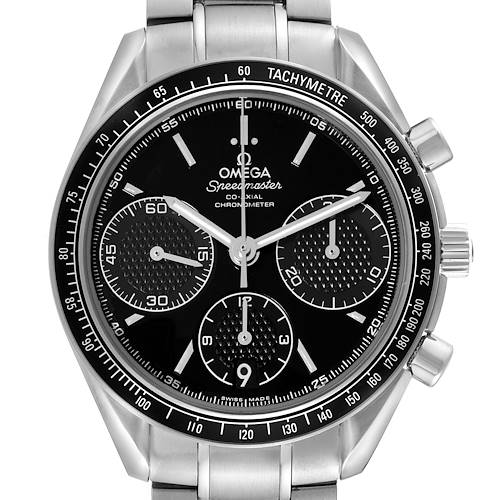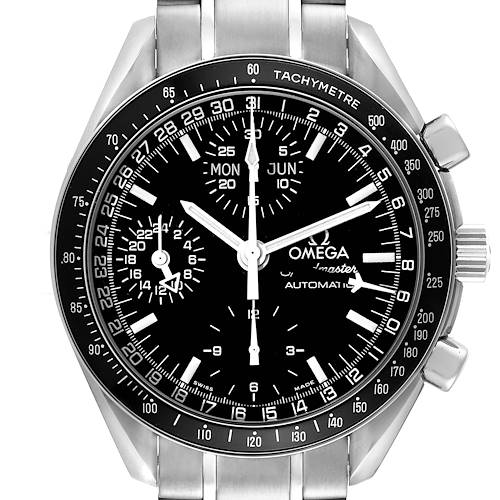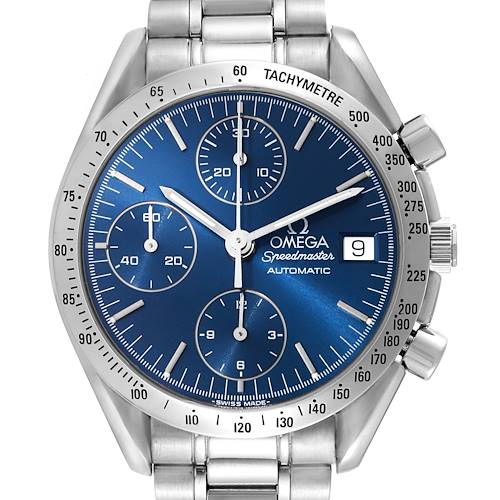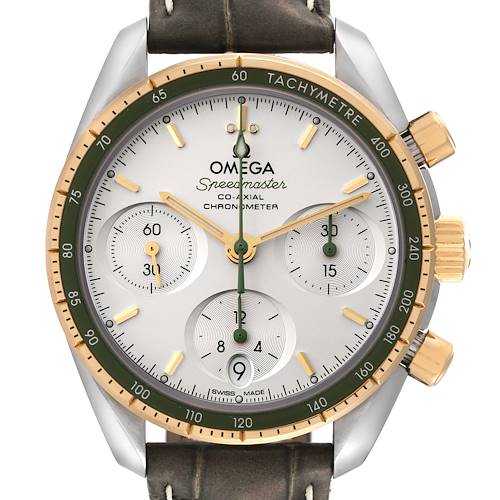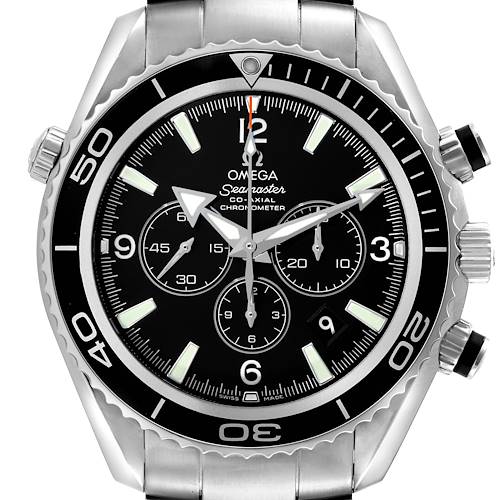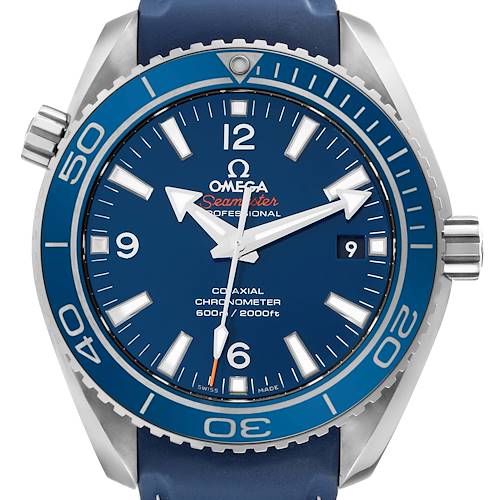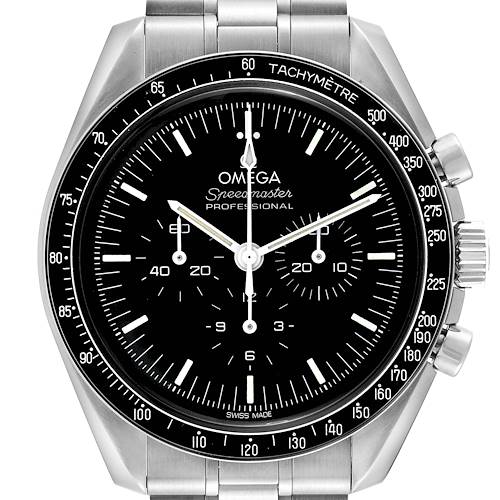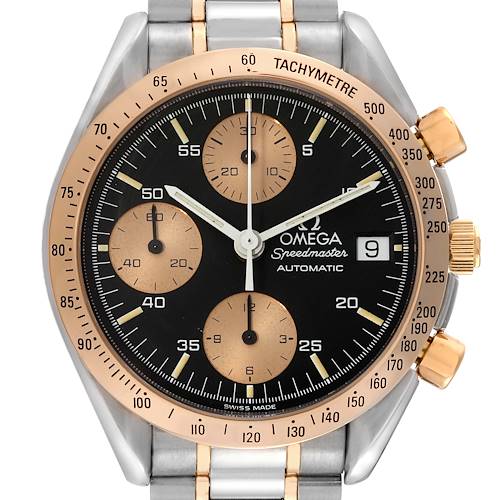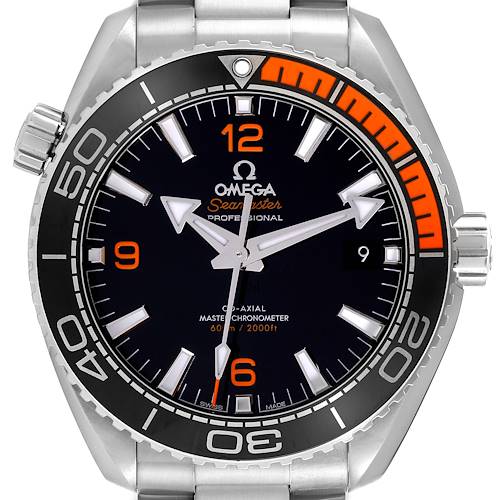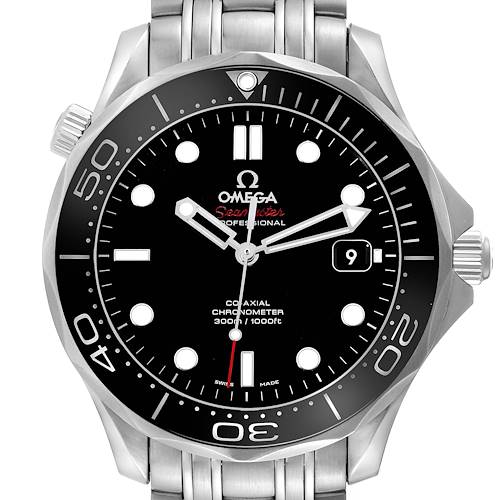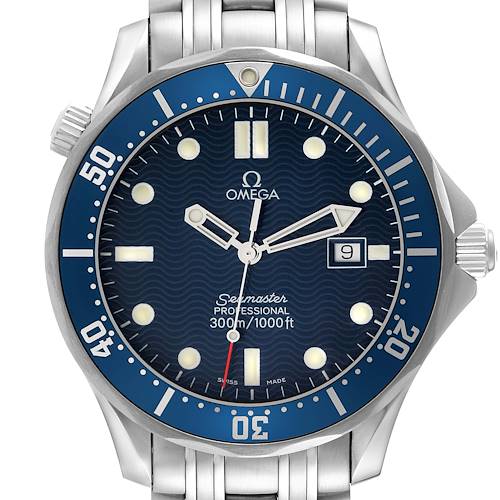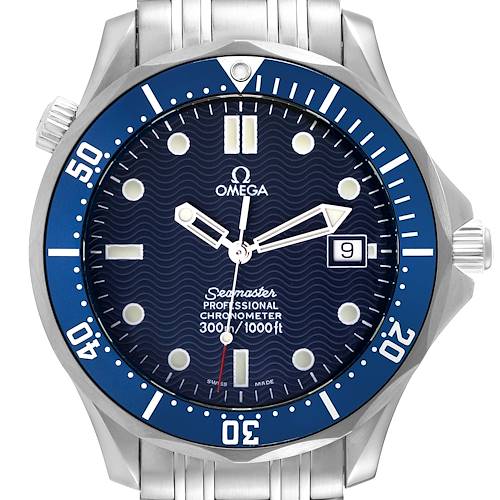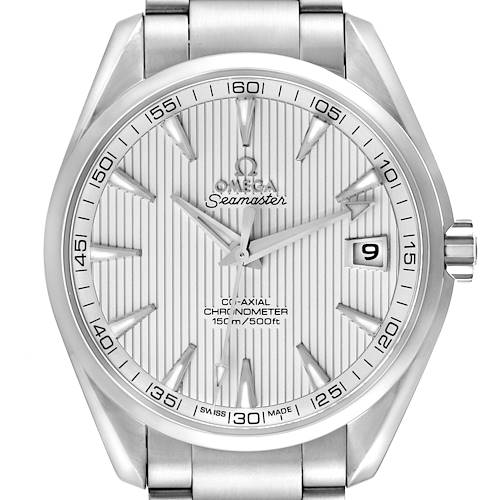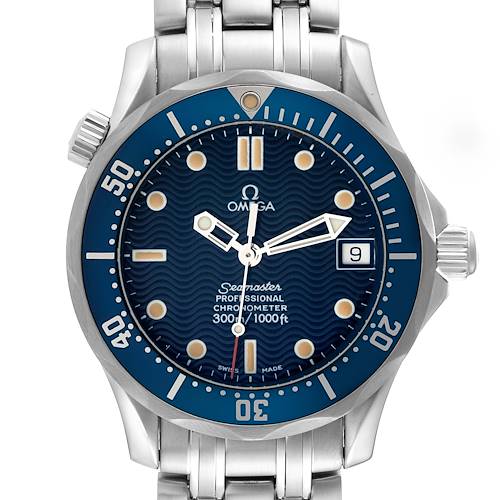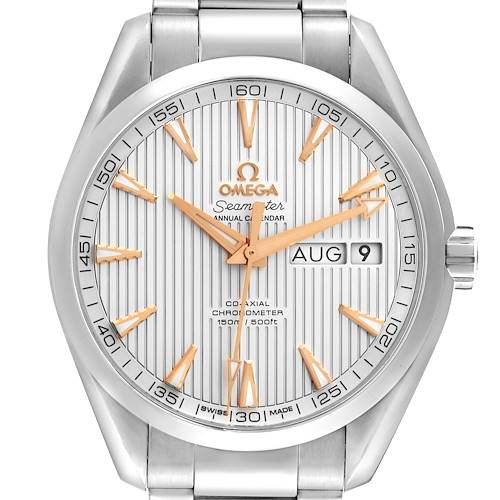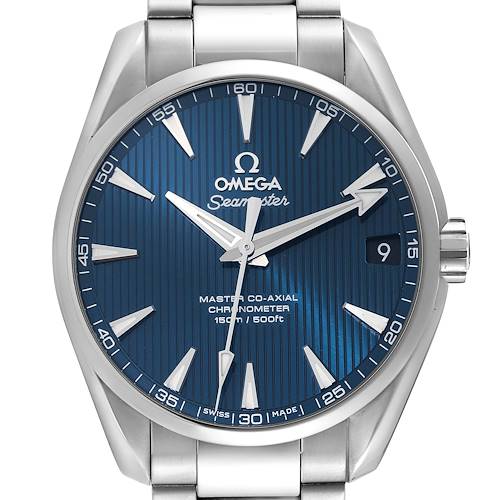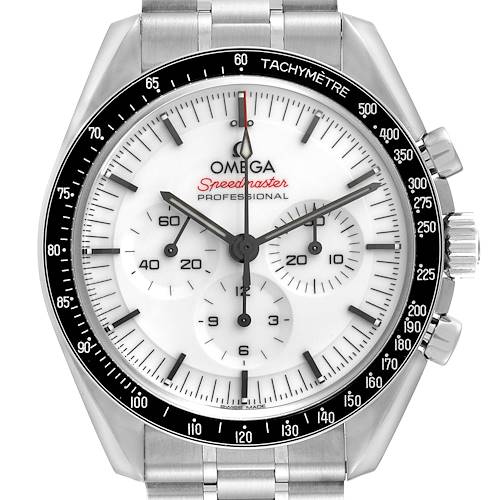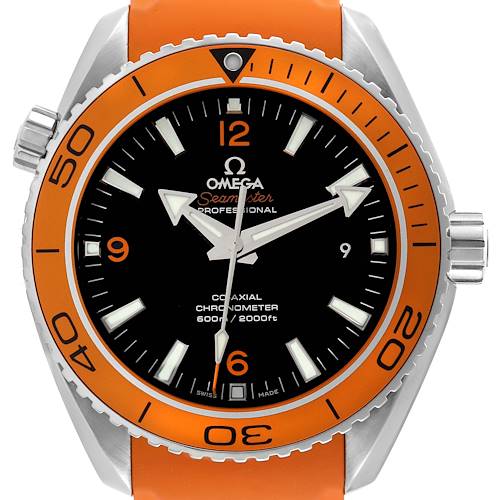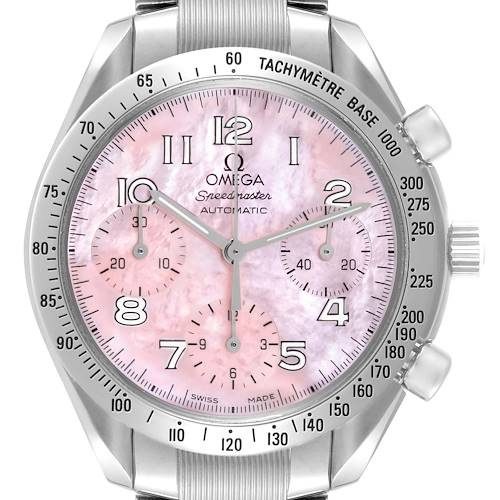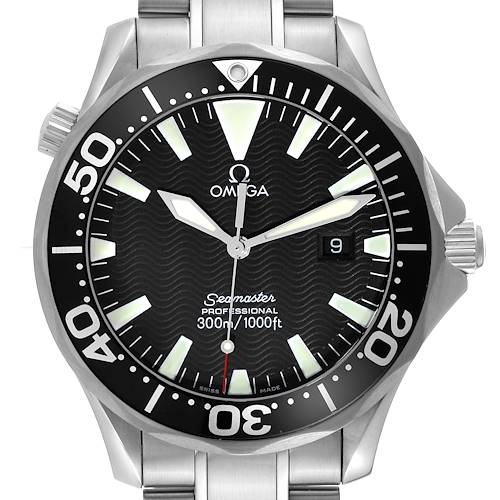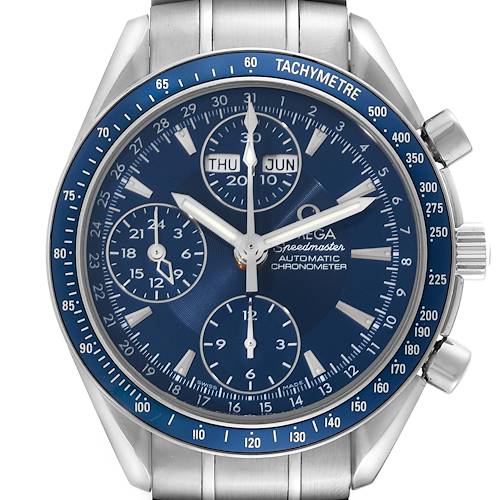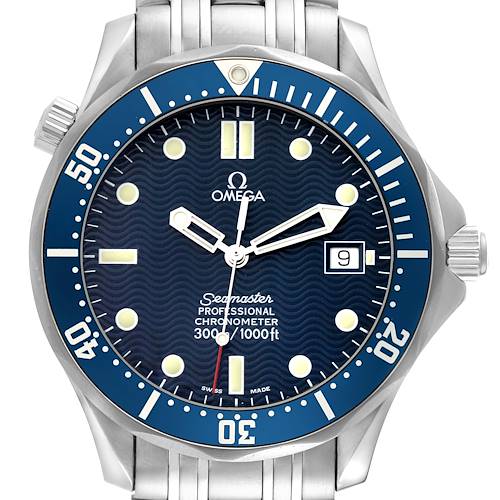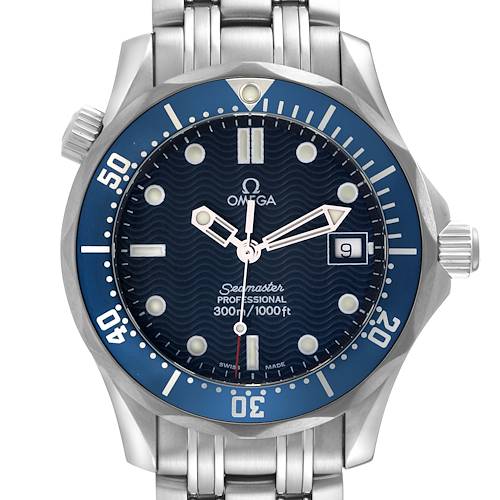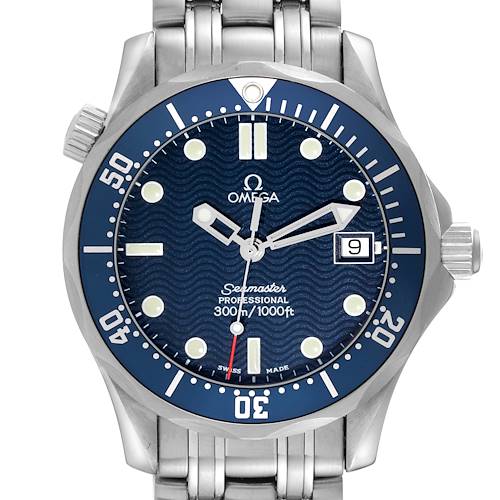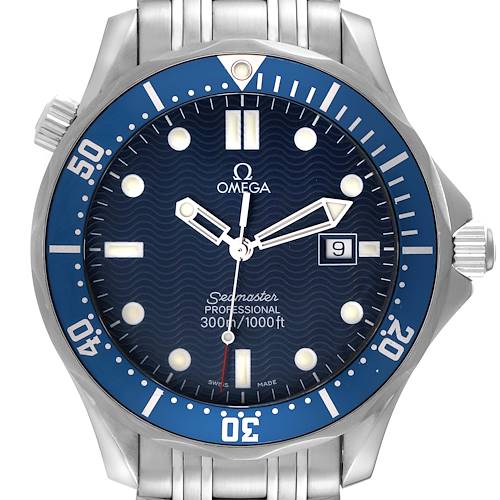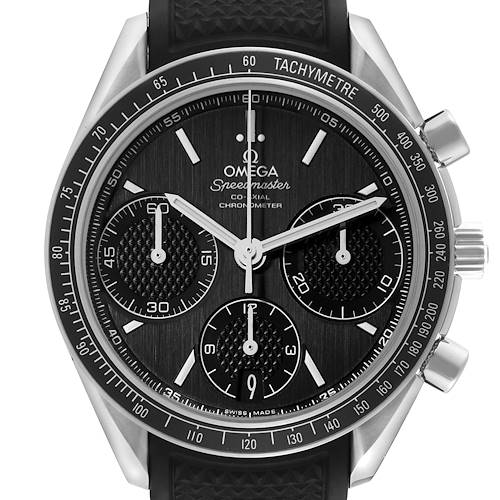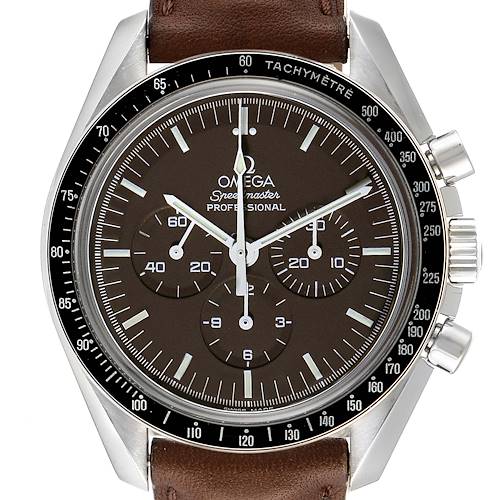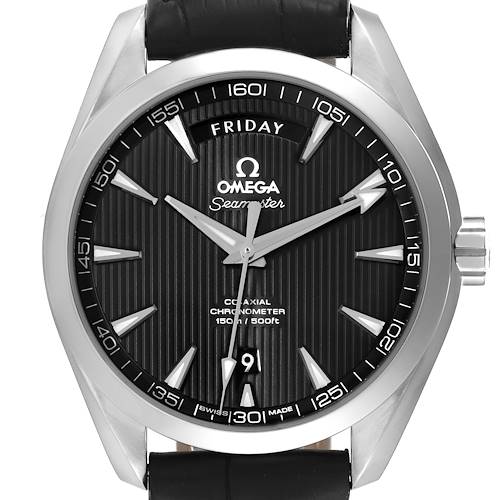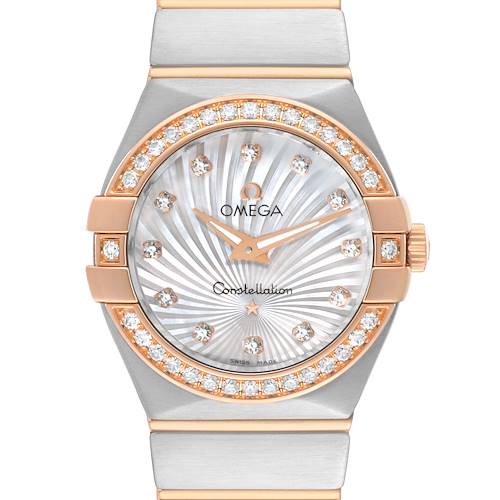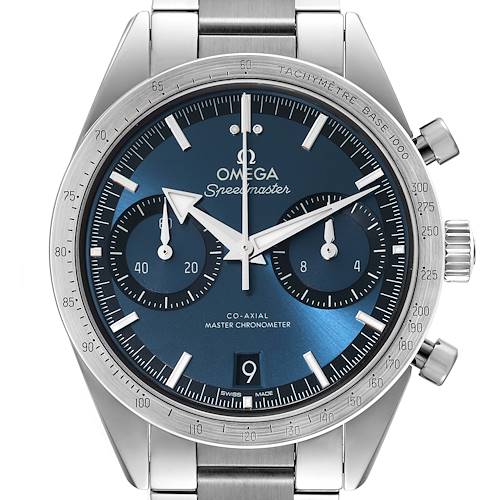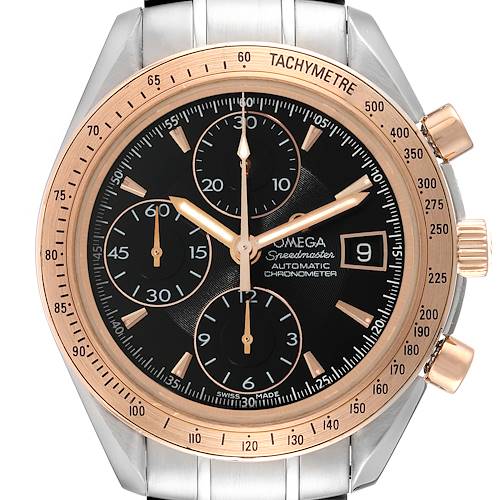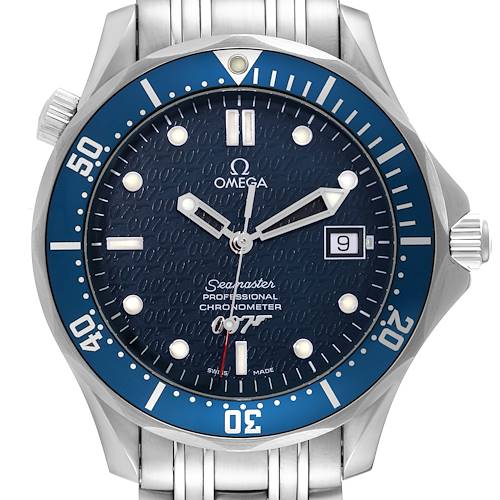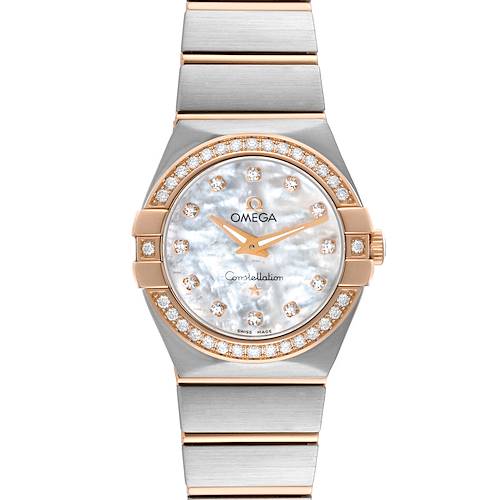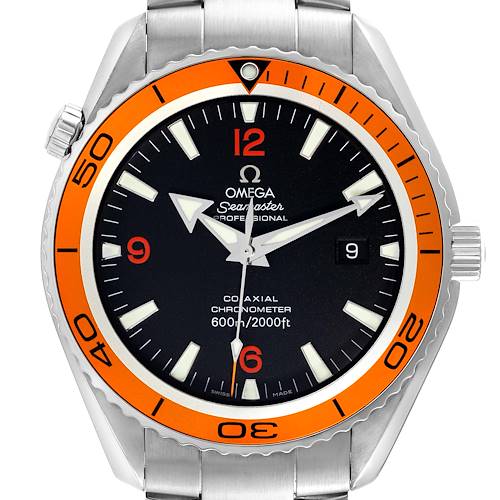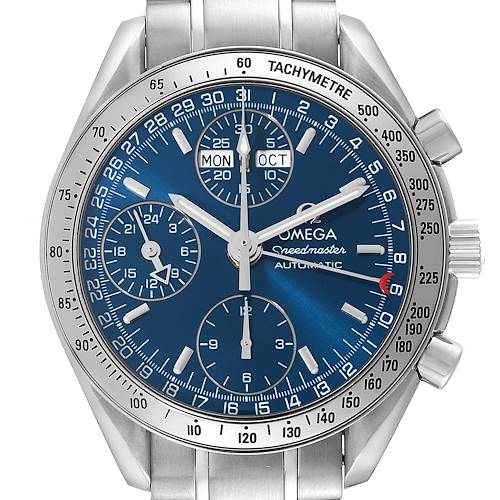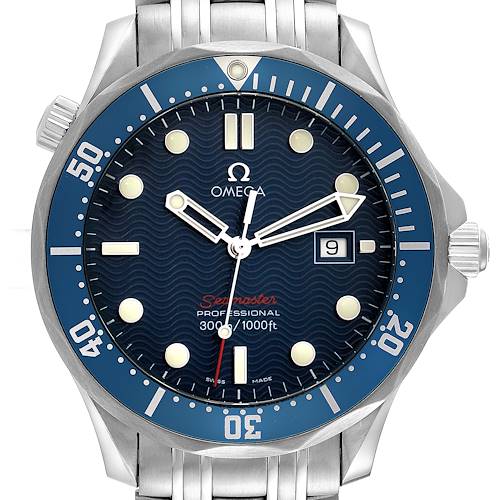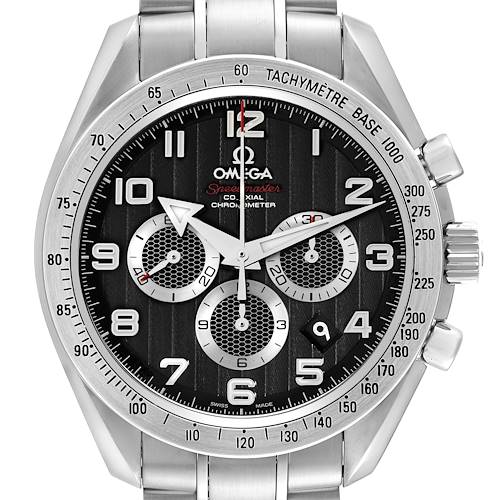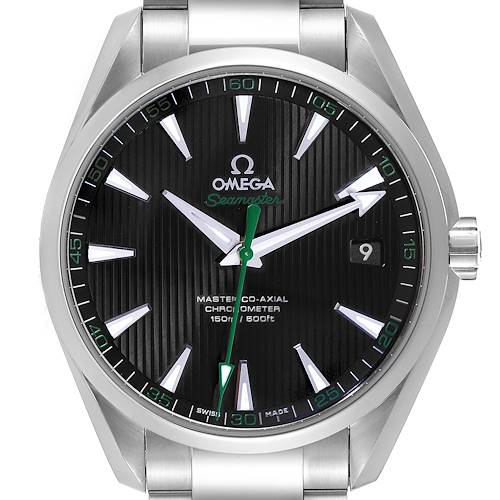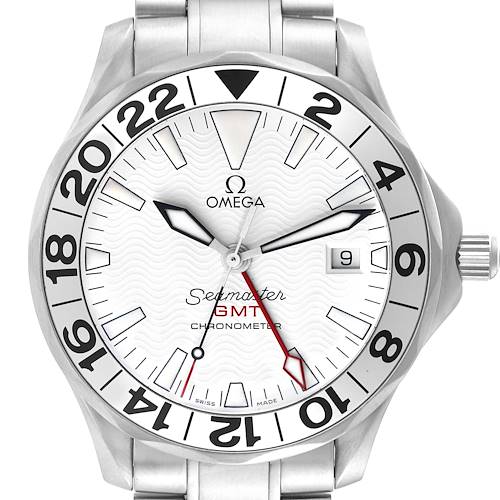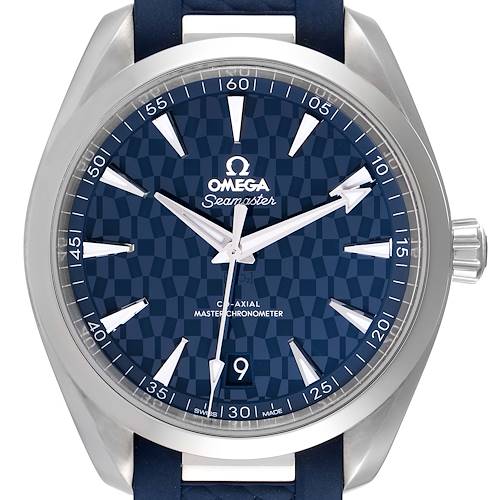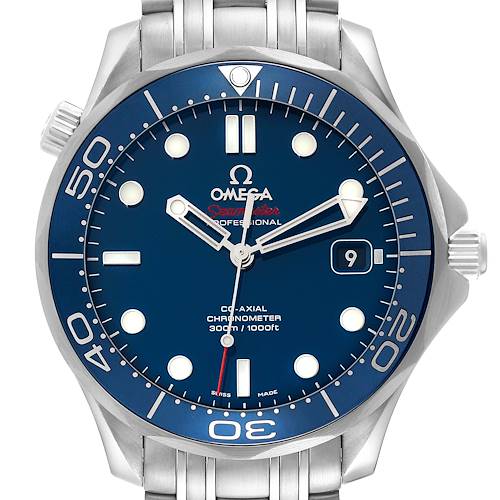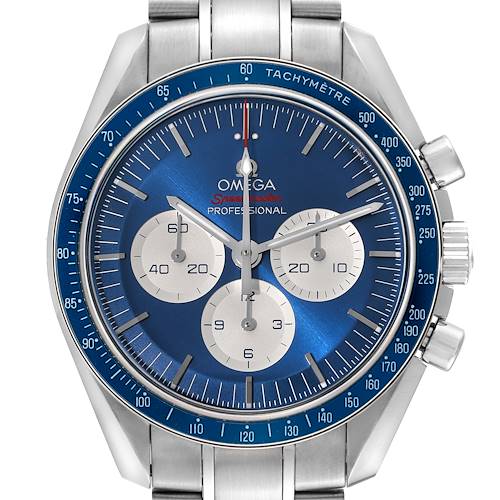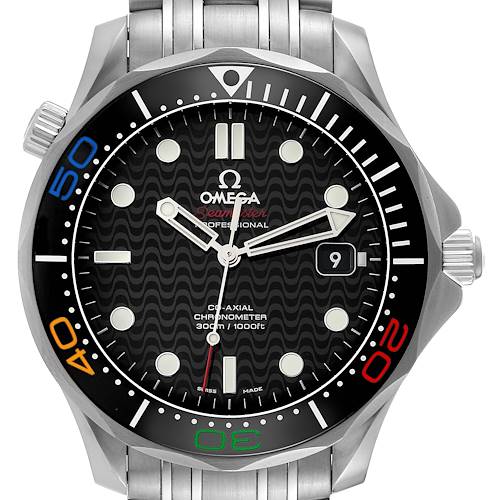- CALL US (404) 814-1814
- LIVE SUPPORT
- EMAIL US
-
WISHLIST (0)
-
CART(0)

New Arrivals | Omega Watch Collection
228 MATCHES FOUND
Omega Watches Collection
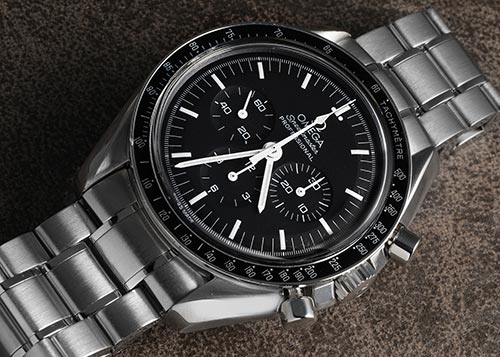
Omega is one of the world’s foremost watchmakers. True to its name, Omega represents the highest standard when it comes to precise, durable, and well-designed wrist watches.
Aside from their exceptional craftsmanship and advanced mechanisms, Omega watches are also sought-after for their illustrious heritage. Omega has been the official timekeeper of the Olympic Games since 1932, the sole watch brand to pass NASA’s rigorous tests in the 1960s, and was also present during various pivotal moments in human exploration. It’s little wonder that just about any watch collector wants an Omega timepiece.
At SwissWatchExpo, we carry a wide range of Omega watches for men and women. From sport chronographs and diver’s watches, to refined and classically styled dress pieces, we can help you find an Omega watch to suit your lifestyle and occasion.
A BRIEF HISTORY OF OMEGA
Omega was established by Louis Brandt in La Chaux de Fonds, Switzerland in 1848. It was initially known as La Generale Watch Co., a small workshop selling precision watches from parts supplied by local craftsmen.
When Brandt passed away in 1879, his sons took over to carry on their father’s vision. The brothers went on to produce their first commercial caliber, the Labrador in 1885; followed by the world’s first minute repeating timepiece in 1892. Two years later, they launched the extremely accurate 19-Ligne Omega Caliber, whose success would lead to the launch of the Omega brand as its own company. The Omega Watch Co was officially founded in 1903.
In 1905, Omega became the official timekeeper of sporting events in Switzerland, and in 1932, landed one of the most vital partnerships in the brand’s history: being the official timekeeper for the Olympic Games in Los Angeles, California. The partnership continues to this day, and Omega has served as the official timekeeper for over 20 Olympic Games.
In 1948, Omega celebrated their 100th year anniversary by introducing the Omega Seamaster. Today, the line of water resistant watches is still in production, and is their longest-running collection.
In 1965, Omega received significant endorsement from NASA, which qualified the Speedmaster as the official watch for all manned space missions.
Four years after, the Omega Speedmaster would make history as the first watch on the moon, worn on the wrist of astronaut Buzz Aldrin during the 1969 Apollo 11 mission. The Speedmaster also played a life-saving role in the 1970 Apollo 13 mission, helping the astronauts return home safely, after the spacecraft malfunctioned.
In the 1990s, Omega earned mainstream popularity, when the Omega Seamaster was chosen as the official watch of the James Bond franchise. The partnership continues, and every actor who played 007, from Pierce Brosnan to Daniel Craig, wore an Omega Seamaster on their wrist.
From sports timekeeping and space exploration, to film and pop culture, Omega has cemented its reputation as one of the most important watch brands in the world.
ABOUT THE OMEGA COLLECTION
Aside from their top-notch quality and pioneering features, Omega watches are also known for their versatility. From high-performance pieces like the Omega Speedmaster and Omega Seamaster, to dressier models like the Omega Constellation, there is an Omega timepiece for just about anyone.
The seemingly limitless number of styles in the Omega landscape can be categorized into four main watch families, each with their own sub-branches of offerings.
OMEGA SPEEDMASTER (1957)
The Omega Speedmaster is a line of chronograph watches introduced in 1957. It was initially created as a sports and racing chronograph, to complement the brand’s position as the official timekeeper of the Olympics. In 1965, after a series of rigorous tests, the manual-winding Omega Speedmaster was chosen as the official watch of NASA in its manned space missions. It made history as the first watch on the moon, and was famously named the “MoonWatch”.
Today, various chronograph watches are marketed under the Omega Speedmaster name, which can be grouped into the following sub-collections:
- MOONWATCH – iterations of the original Speedy that Buzz Aldrin famously wore on the Moon. It features an asymmetric case, a tri-compax dial layout, and a tachymeter bezel. These watches are available with hesalite crystals and an embossed Seahorse caseback, or with a sapphire-crystal glass on both sides.
- HERITAGE MODELS – modern revivals of vintage models, often manifested as special, limited, or anniversary editions.
- DARK SIDE OF THE MOON – Speedmaster models crafted from a single block of black zirconium oxide ceramic, inspired by the mysteriousness of space.
- SPEEDMASTER 38 – Speedmaster models with more refined 38mm cases, vibrant colors, and dynamic designs.
- TWO COUNTERS – Speedmaster models with two-register dials, especially designed for the race track.
- INSTRUMENTS – digital watches made for space and air exploration, mostly catered towards pilots and astronauts.
OMEGA SEAMASTER (1948)
The Omega Seamaster is a collection of diving and water-resistant watches introduced in 1948. The original Seamaster was modeled after the watches worn by British military during World War II. What made it particularly popular, is that it had impressive water resistance for the time, but had the grace and refinement of a dress watch.
Over the decades, Omega would launch a large variety of Seamaster watches for different needs: from splash-proof casual-to-dress timepieces, to robust and high-tech dive watches. Today, the Seamaster is the brand’s longest-running collection, with offerings under four sub-categories:
- DIVER 300M – watches characterized by a scalloped case, helium escape valve at 10 o’clock, and 300m water resistance. The most popular version from this collection is the emblematic blue wave dial, the first Omega Seamaster worn in a James Bond film.
- AQUA TERRA – robust and sporty everyday watches with 150m water resistance. These are characterized by their “teak concept” dials, which feature a line pattern inspired by the wooden decks on luxury yachts.
- PLANET OCEAN – watches for professional and recreational divers, with 600m water resistance. These watches are equipped with a helium escape valve, unidirectional bezel, and bright, luminous hands and indices.
- HERITAGE MODELS – a collection of watches that harken back to earlier models from the Seamaster family. These include the likes of the Omega Seamaster 300, Omega Seamaster Ploprof, and the Railmaster.
OMEGA CONSTELLATION (1952)
Introduced in 1952, the Omega Constellation is known for its elegantly refined cases and ultra-precise movements. The classic Constellation watch is characterized by four claws on the 3 and 9 o’clock position, a golden star above 6 o’clock to represent accuracy, and an integrated bracelet. Omega Constellation watches come in stainless steel, two-tone, yellow gold, and Sedna gold, and in various sizes for men and women.
The Omega Constellation Globemaster became part of the collection in 2015. Its design pays homage to vintage watches from the 1950s, featuring a “pie pan” or stepped dial and a fluted bezel. It also featured the world’s first Master Chronometer movement.
OMEGA DE VILLE (1967)
The Omega DeVille was originally part of the Omega Seamaster family, but was spun off as a separate line in 1967. The DeVille line offers a wide selection of traditional designs best suited for formal occasions. Gems from the collection include the Ladymatic, a line of women’s dress watches adorned with precious materials such as diamonds and mother of pearl; and the DeVille Tourbillon, the first tourbillon watch to receive a Master Chronometer certification.
OMEGA REFERENCE NUMBERS
Omega’s diverse range of watches not only provide choices in terms of functionality, features, and design, but offer a stunning array of finer details to choose from. These include case sizes, material variations, numerals on the dial, hand styles, and so much more.
To document and identify the wide array of watches on offer, Omega uses a product identification code (PIC for short) which consists of 14 digits. The guide below offers an understanding of this unique identifier.
The 14-digit number can be broken down as follows: AAA.BB.CC.DD.EE.FFF
AAA – the first three digits denote the collection or family of watches. For example, 311 means it’s a Speedmaster Moonwatch. Below are the respective numbers per collection:
| 130 | Globemaster |
| 131 | Constellation |
| 210 / 212 | Seamaster Diver 300M |
| 215 | Seamaster Planet Ocean 600M |
| 220 | Seamaster Aqua Terra/Railmaster |
| 225 | Seamaster Bullhead |
| 227 | Seamaster PloProf |
| 233 / 234 | Seamaster 300 |
| 304 / 311 | Speedmaster Moonwatch |
| 318 | Speedmaster X-33 |
| 324 | Speedmaster 38 |
| 327 | Speedmaster MkII |
| 329 | Speedmaster Racing |
| 331 | Speedmaster ‘57 |
| 424 | De Ville Prestige |
| 425 | De Ville Ladymatic |
| 428 / 435 | De Ville Trésor |
| 433 | De Ville Hour Vision |
| 511 | Seamaster 1948 editions |
| 528 / 529 | De Ville Tourbillon |
BB – The following two digits represent the case and the strap or bracelet material; For example, 13 means the watch comes in a stainless steel case paired with a nonmetal strap.
| 10 | Steel case and bracelet |
| 11 | Steel + Other metal |
| 12 | Steel + Non-metal |
| 13 | Steel + Non-metal (CITES) |
| 15 | Steel Paved case and bracelet |
| 16 | Steel Paved + Other metal |
| 17 | Steel Paved + Non-metal |
| 18 | Steel Paved + Non-metal (CITES) |
| 20 | Steel/Gold case and bracelet |
| 21 | Steel/Gold + Other metal |
| 22 | Steel/Gold + Non-metal |
| 23 | Steel/Gold + Non-metal (CITES) |
| 25 | Steel/Gold Paved case and bracelet |
| 26 | Steel/Gold Paved + Other metal |
| 27 | Steel/Gold Paved + Non-metal |
| 28 | Steel/Gold Paved + Non-metal (CITES) |
| 30 | Steel/Other case and bracelet |
| 31 | Steel/Other + Other metal |
| 32 | Steel/Other + Non-metal |
| 33 | Steel/Other + Non-metal (CITES) |
| 35 | Steel/Other Paved case and bracelet |
| 36 | Steel/Other Paved + Other metal |
| 37 | Steel/Other Paved + Non-metal |
| 38 | Steel/Other Paved + Non-metal (CITES) |
| 50 | Gold case and bracelet |
| 51 | Gold + Other metal |
| 52 | Gold + Non-metal |
| 53 | Gold + Non-metal (CITES) |
| 55 | Gold Paved case and bracelet |
| 56 | Gold Paved + Other metal |
| 57 | Gold Paved + Non-metal |
| 58 | Gold Paved + Non-metal (CITIES) |
| 60 | Gold/Other case and bracelet |
| 61 | Gold/Other + Other metal |
| 62 | Gold/Other + Non-metal |
| 63 | Gold/Other + Non-metal (CITES) |
| 65 | Gold/Other Paved case and bracelet |
| 66 | Gold/Other Paved + Other metal |
| 67 | Gold/Other Paved + Non-metal |
| 68 | Gold/Other Paved + Non-metal (CITES) |
| 90 | Other Material case and bracelet |
| 91 | Other Material + Other metal |
| 92 | Other Material + Non-metal |
| 93 | Other Material + Non-metal (CITES) |
| 95 | Other Material Paved case and bracelet |
| 96 | Other Material Paved + Other metal |
| 97 | Other Material Paved + Non-metal |
| 98 | Other Material Paved + Non-metal (CITES) |
CC – represents the case diameter, rounded up to the next digit.
DD – the fourth digit or the first “D” represents the type of caliber. It denotes the nature of the movement - for example, whether it is a chronograph or a co-axial chronograph.
The fifth digit or the second “D” represents the number of complications on the watch, meaning features beyond the hour, minute, second, and date.
| 0 | Mechanical |
| 1 | Mechanical chronometer |
| 2 | Mechanical (Co-Axial) |
| 3 | Mechanical chronograph |
| 4 | Mechanical chronograph chronometer |
| 5 | Mechanical chronograph (Co-Axial) |
| 6 | Quartz |
| 7 | Quartz |
EE – represents the type of dial. For example, 01 means it has a simple black dial.
| 01 | Black |
| 02 | Silver |
| 03 | Blue |
| 04 | White |
| 05 | White mother-of-pearl |
| 06 | Gray |
| 07 | Coloured mother-of-pearl |
| 08 | Champagne |
| 09 | Ivory |
| 10 | Other colour |
| 11 | Red |
| 12 | Yellow |
| 13 | Brown |
| 51 | Black + precious stones |
| 52 | Silver + precious stones |
| 53 | Blue + precious stones |
| 54 | White + precious stones |
| 55 | White mother-of-pearl + precious stones |
| 56 | Gray + precious stones |
| 57 | Coloured mother-of-pearl + precious stones |
| 58 | Champagne + precious stones |
| 59 | Ivory + precious stones |
| 60 | Other colour + precious stones |
| 61 | Red + precious stones |
| 62 | Yellow + precious stones |
| 63 | Brown + precious stones |
| 64 | Sapphires |
| 99 | Fully Paved/special materials |
FFF – the last three digits represents the watch’s sequence out of the total production
As detailed as the tables above are, they are still not exhaustive. They should not replace professional buying advice and can only be used as reference. They still leave out a few details, such as:
- The production year
- The type of gold used – whether yellow gold, Moonshine, Sedna, etc.
- The type of non metal strap used – it could be leather, rubber, etc.
- The type of caliber – whether it is automatic, manual winding, and whether silicon escapement is used
- Special materials used for the cases and dials
- Whether it features the new METAS Master certification
COMMON QUESTIONS ABOUT OMEGA
HOW CAN I TELL IF AN OMEGA WATCH IS AUTHENTIC?
Omega watches are made with top grade materials and with utmost precision. As sophisticated as some counterfeiters may be, they will not be as meticulous as expert watchmakers. Check for any errors on the watch, such as spelling and engraving mistakes, or signs of substandard quality, such as misaligned bracelets or unfinished surfaces.
For more information, check out our guide on How to Spot a Fake Omega Watch. SwissWatchExpo also advises clients to only go to an Omega authorized dealer for authentication.
WHY ARE OMEGA WATCHES EXPENSIVE?
The true value of an Omega timepiece is determined by the dedicated manhours that it takes to produce one from start to finish. Each Omega watch can take up to 500 hours to make.
Omega watches that are no longer in production, particularly vintage or historical models, are also harder to come by. When a brand confirms that they will cease production of a watch, it tends to increase the demand for this watch in the pre-owned market.
ARE OMEGA WATCHES GOOD INVESTMENTS?
Omega watches retain their value quite well. However, it is not recommended to buy a watch for the sole purpose of selling it later for a profit, as it is not guaranteed that their price will appreciate later on.
HOW OFTEN DO I NEED TO SERVICE MY OMEGA WATCH?
Omega recommends that you have the water resistance checked once a year, and that a complete service be performed every 5 to 8 years. Of course, the service frequency also depends on your usage of the watch and the environment in which it is worn. For example, if you use your watch for diving, you may need to check on the flexibility of the gasket. There are also some signs that your watch needs a service sooner rather than later. Here are Signs It’s Time for Watch Maintenance.
WHERE CAN I HAVE MY OMEGA WATCH SERVICED?
Fine timepieces require routine maintenance and repair. At SwissWatchExpo, we offer a full range of services, from basic maintenance to major repairs and restorations. We have invested in a state-of-the-art service center, and are staffed with proficient horologists. When you bring your watch to our center, rest assured that a trained master watchmaker will handle your watch from start to finish. Find out more about our comprehensive Repair Services.
HOW MUCH WILL SERVICING MY OMEGA COST?
At SwissWatchExpo, we provide repair estimates free of charge. The cost of the repair or maintenance service will depend on the model and the state of your watch. Upon receiving your timepiece, it will be examined by our master watchmakers, who will create an estimate of the work to be done. We will only commence work once you approve the estimate.
BUYING A CERTIFIED PRE-OWNED OMEGA VS NEW OMEGA
Omega watches have recorded some of the most significant moments in history. From the Speedmaster MoonWatch that accompanied astronauts in space, to the Seamaster that graced the wrist of James Bond, Omega’s heritage is one of the reasons watch collectors love their timepieces. If you want to wear these same watches, you can’t always buy brand new.
Buying a pre-owned Omega expands your choices when it comes to the range of models and price points to choose from. When you buy brand new, it limits your choices to current models, whereas the pre-owned market can give you a stunning array of options – from previous versions, special and limited editions, and even discontinued styles.
Moreover, there is a certain level of depreciation when a watch moves from “brand new” to “pre-owned”. Buying a pre-owned watch lets you avoid taking this initial depreciation. This may not always be the case, as some vintage models appreciate over the years, but the general rule is that a pre-owned Omega watch will be less expensive than a brand-new piece.
Lastly, pre-owned watches can be bought in mint and excellent condition. In fact, there are watches being sold that have been kept in their box completely unworn. At SwissWatchExpo, we are committed to delivering our watches in “like new” condition. Every watch that we have listed on the website is first inspected, and restored if needed, by our expert watchmakers. In fact, we often hear from clients that they can’t believe their watch isn’t new.
We believe that buying luxury timepieces pre-owned creates the maximum possible value for the consumer. If you’re in the market for an Omega watch, our sales experts will help you find the best one for your needs, taste, budget and occasion.


